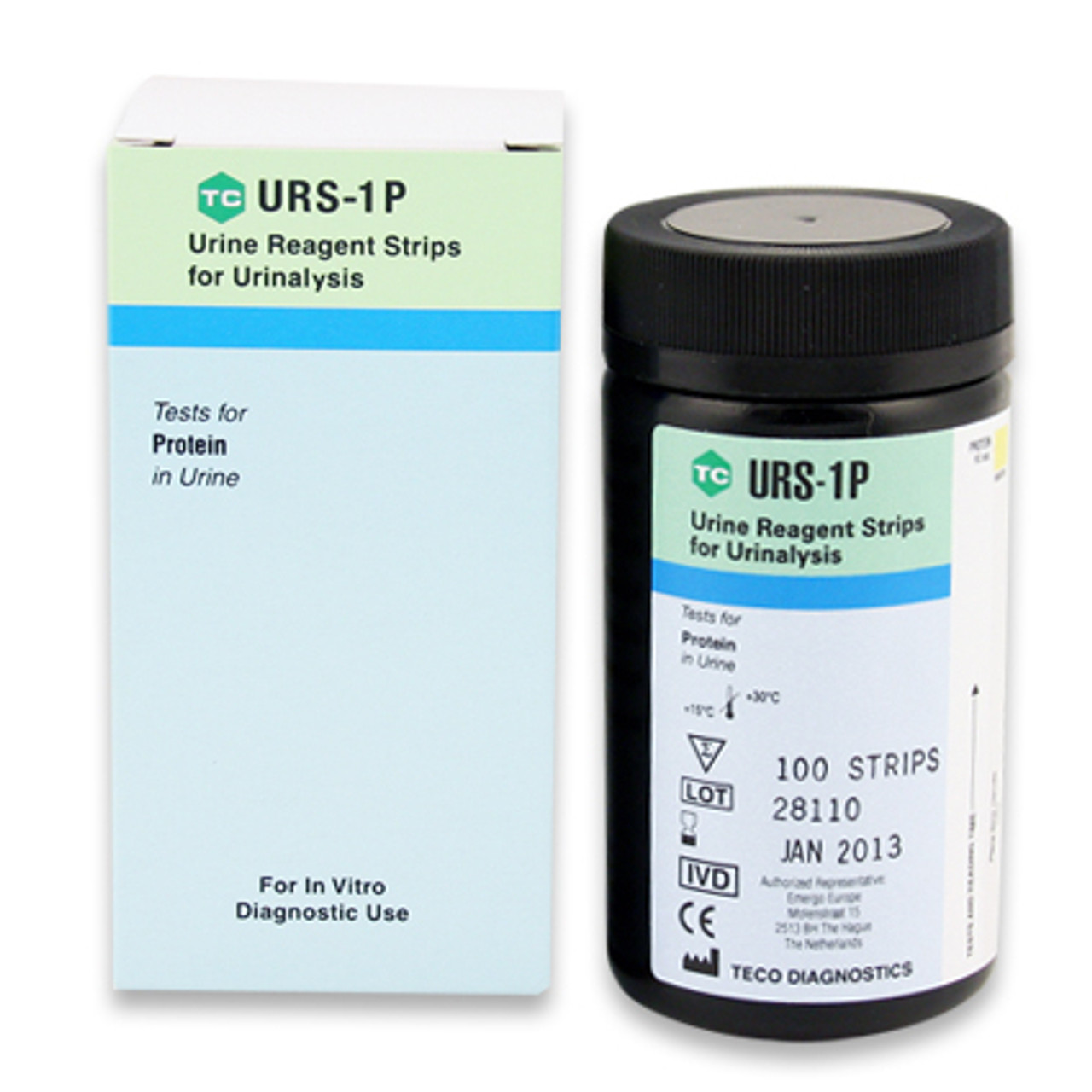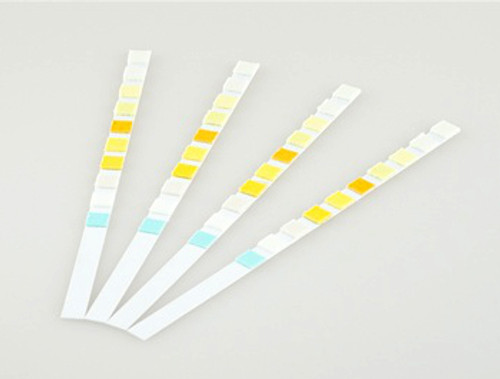Product Description
Ketone (Acetoacetic Acid) is a substance that can be found in trace amounts in urine. However, when large amounts of ketone are found in your urine it is an indication of a serious problem, especially for people with diabetes.
Ketone is produced when you burn too much fat and carbohydrates. This situation is more likely to be found in people with Type I Diabetes (insulin dependent). When you produce a lot of ketones, it is a good indication that your diabetes may be out of control. This complication is called Ketoacidosis and can lead to a coma. The Urine Test for Ketone can provide a warning signal for you to contact a doctor or health care provider before your diabetes gets out of control. Your doctor or health care provider can then recommend the necessary actions for you to get better.
(Contains 100 Strips)
FDA Cleared, Over-the-Counter approved for home use. (FDA 510K#: K003987)
URS-1K test strips for Urinalysis are firm plastic strips to which a ketone reagent area is affixed. URS-1K ketone test strips are packaged along with a drying agent in a plastic bottle with a twist off cap. Each test strip is ready to use upon removal from the bottle. The entire reagent strip is disposable. Results are obtained by direct comparison of the ketone test strip with the color blocks printed on the bottle label.
Procedure and Use:
- Collect a fresh urine sample in a clean, dry container preferably glass. First morning samples contain the highest concentration of target markers.
- Remove one reagent strip from the bottle and immediately replace the container cap, minimizing the exposure of the remaining test strips to light and air.
- Completely immerse the reagent pads of the strip in the urine sample and then remove immediately to avoid dissolving out the reagent pads.
- While removing the reagent strip, run the edge of the strip against the rim of the specimen container to remove excess urine. Hold the strip in a horizontal position to prevent possible cross contamination of chemicals located in adjacent reagent pads.
- Compare the color change of reagent pads to the corresponding color chart on the bottle label. Read results according to the chart's time frame for each panel tested.
- Record the results of your readings for discussion and/or evaluation with your physician or healthcare provider and then discard the used reagent strip.
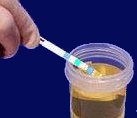
Why Do I Need To Test For Ketone?
- Ketone is a substance that can be found in trace amounts in urine. However, when large amounts of ketone are found in your urine it is an indication of a serious problem, especially for people with diabetes.
- Your doctor or health professional can tell you how to change your medication/insulin dose or your food intake to bring your diabetes back into control.
- Testing should be done regularly, after a testing pattern has been established with your doctor or health professional.
- 100% precision and 100% accuracy
Materials Provided in the Ketone Test Strip Package:
- One bottle containing 100 strips of URS-1K Ketone Test Strips.
- A visual comparison color chart for reading test results is printed on the bottle label.
Warnings And Precautions:
- Any visual impairment, such as color blindness, will affect accuracy of reading the results.
- To obtain best results, use fresh urine.
- Follow directions exactly.
- For optimal results, accurate timing is essential.
- Exposure of URS-1K to light, moisture, or heat will cause deterioration and decrease reactivity.
- The user should follow up all positive results with his or her health care provider.
- Do not use after expiration date.
Storage And Handling:
- All warnings, precautions, and proper storage procedures must be followed to avoid deterioration and insure reactivity of the Ketone Test Strips.
- Store bottle at temperatures between 15°- 30°C (59°- 86° F) and out of direct sunlight.
- Do not use after expiration date.
- Throw the old bottle away and use a new bottle of URS-1K after 6 months has passed from breaking the safety seal.
- All unused strips must remain in original bottle. Transfer to any other container may cause reagent strips to deteriorate and become nonreactive.
- Do not remove the white packet (desiccants) from bottle. Replace cap immediately and tightly after removing reagent strip.
- Do not touch test areas of the reagent strip.
Reading the Results:
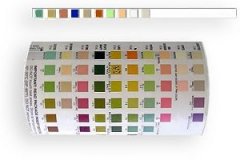
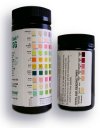
Each vial of urinalysis reagent strips includes a color coded chart. The reactive color of each panel on the test strip is compared to the closest corresponding color on the result chart. The concentration level range for each chemical marker is indicated below each color block on the result chart. As with all tests dealing with color intensity or color matching, it is often recommended to obtain another person's interpretation of the test result. Shown to the left is the color result chart for the URS-10, ten parameter test strip. Each of the ten reactive reagent pads on the test strip are compared to the corresponding line of color blocks on the chart. The closest color match indicates the test result. Use of reagent strips are intended as an initial indication only of elevated chemical markers and not conclusive of a specific diagnosis. Further testing and consultation with a healthcare professional is necessary to confirm the presence of specific disease or health conditions.
If you have questions regarding this or any other product, please call Customer Service Department at 1-800-992-1345 or consult your doctor, diabetes educator, pharmacist or Self Testing Center for advice on testing technique and results.
Click to View: Ketone Test Strip Instructions
CPT CODE*: 81003QW - Urinalysis, automated, without microscopy, Reimbursement: $3.16
*All CPT codes are supplied for information purposes only and represent no statement; promise or guarantee by DrugTestingforLess.com or its subsidiaries that these codes will be appropriate or that reimbursement will be made. It is the responsibility of the service provider to confirm the appropriate coding required by their local Medicare carriers, fiscal intermediaries and commercial payors.


